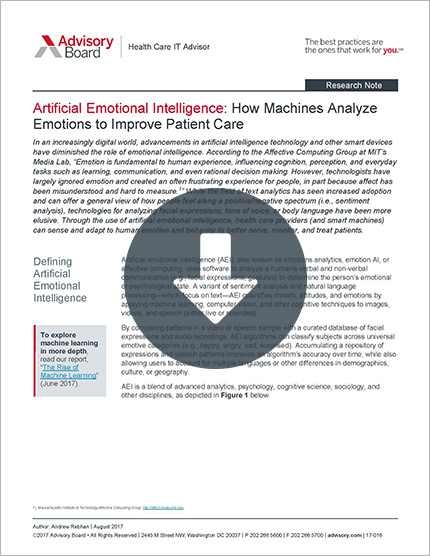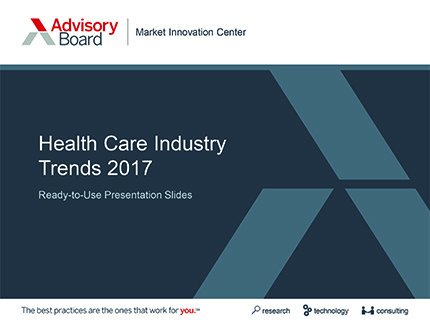Auto logout in seconds.
Continue LogoutEvidence is ramping up that IQ is "real, partially hereditary, and predictive of important life outcomes," such as health and prosperity, but that doesn't mean a high IQ ensures success—or that a low IQ guarantees failure, Scott Alexander writes for Vox.
Preparing for a presentation? Download slides on the latest health care trends
According to Alexander, a psychiatrist, there's "overwhelming scientific consensus" validating IQ, which understandably concerns those who believe themselves saddled with a low IQ. But Alexander argues that there's a "middle ground" in the debate, "where people can admit IQ is scientifically useful for discovering statistical truths about society, but remain skeptical of its ability to judge individuals."
Alexander explains two points to support his argument:
1. Casual IQ testing isn't the most accurate measure of a person's intelligence
Alexander points out that while research suggests "IQ tests correlate very well with other IQ tests, the same IQ test repeated later on, and other tests of intellectual ability like the SAT," many of the IQ tests administered outside of a lab lack the necessary rigor for analysis.
For instance, even an SAT test—typically administered in standardized conditions—are subject to rushed test administrators, sleep-deprived or overcaffinated test-takers, and other factors, such as age. (According to Alexander, "IQ doesn't stabilize until late adolescence," so many people may have taken the test at too young an age.)
Alexander explains that while these scores "probably aren't completely useless," they likely aren't nearly as significant an indication of intelligence as those who voice concerns about low scores might believe.
For instance, Alexander cites Richard Feynman, a Nobel Prize-winning physicist who has spoken before about receiving a 124 on the sole IQ test he took. While a "124 is plenty bright," Alexander notes that it is roughly 30 points below "the lowest remotely plausible value." He also cites— Scott Aaronson, "a computer science professor studying the intersection of quantum mechanics and computational complexity," who received a 106, which is about average. In contrast, a formal study of several "eminent physicists … found IQs in the 150s and above—exactly what you would expect from a bunch of geniuses," Alexander writes.
According to Alexander, "The difference between them and Feynman and Aaronson is that the physicists in the sample were tested in adulthood in a formal scientific study, and Feynman and Aaronson are working off half-remembered IQ tests of unclear quality they took in school." He adds, "If you took some half-remembered IQ test in school and heard you got a 106, then good news: For all you know, you too might have the ability to be a professor of quantum physics."
2. Various occupations include people with a wide range of IQs
But even if someone took a reliable IQ test in a formal setting, confirmed his or her score in follow-up tests, and came up short, he or she still would have no reason to be concerned, Alexander writes. "IQ predicts a bunch of things like income and success in various fields, but prediction is not prophecy."
For instance, citing a study that showed the average IQ for various occupations, Alexander explains that while, "on average, intellectually demanding occupations like college professors have higher IQs than less demanding occupations like janitors, … individual janitors are sometimes higher-IQ than individual college professors." And on the flipside, while "the average professor is pretty smart, … a nontrivial number have below-average IQs," Alexander writes, indicating they likely had "some areas where their natural talent greatly exceeds what their IQ would predict—and … they probably supplemented that by working really hard."
Why it matters
Alexander explains that this sort of analysis on the significance of a given IQ matters "because a lot of the most controversial results in social science look kind of like this," including pay gaps linked to race, gender, socioeconomic status, or other factors.
He concludes, "IQ is a real thing—some people really do have higher intelligence than others—but any attempt to use this to make predictions about individuals will fail more often than it will be worth it" (Alexander, "The Big Idea," Vox, 10/23).
Need to get smart, fast? Download slides on the latest health care trends
We updated our most popular slides depicting the important market forces affecting your business in 2017, so you're ready for your next strategy presentation.
Whether you're speaking to your board, C-suite, or community, you'll have access to the latest data, pre-formatted and ready to present. Across 53 slides, we collected everything you need to know about payment reform, the provider market, purchaser behavior, and provider selection trends.
Don't miss out on the latest Advisory Board insights
Create your free account to access 1 resource, including the latest research and webinars.
Want access without creating an account?
You have 1 free members-only resource remaining this month.
1 free members-only resources remaining
1 free members-only resources remaining
You've reached your limit of free insights
Become a member to access all of Advisory Board's resources, events, and experts
Never miss out on the latest innovative health care content tailored to you.
Benefits include:
You've reached your limit of free insights
Become a member to access all of Advisory Board's resources, events, and experts
Never miss out on the latest innovative health care content tailored to you.
Benefits include:
This content is available through your Curated Research partnership with Advisory Board. Click on ‘view this resource’ to read the full piece
Email ask@advisory.com to learn more
Click on ‘Become a Member’ to learn about the benefits of a Full-Access partnership with Advisory Board
Never miss out on the latest innovative health care content tailored to you.
Benefits Include:
This is for members only. Learn more.
Click on ‘Become a Member’ to learn about the benefits of a Full-Access partnership with Advisory Board
Never miss out on the latest innovative health care content tailored to you.


